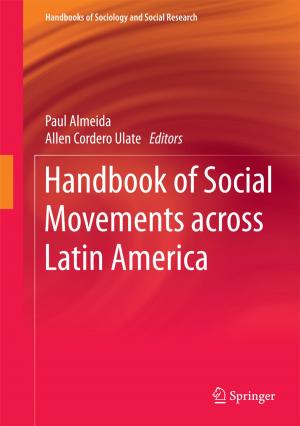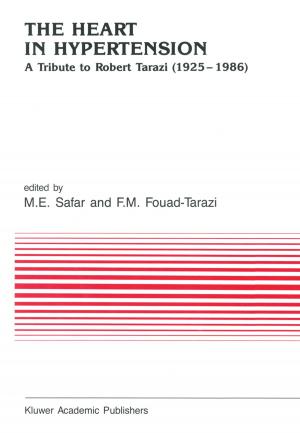International Handbook of Interpretation in Educational Research
Nonfiction, Social & Cultural Studies, Social Science, Methodology, Reference & Language, Education & Teaching, Educational Theory, Philosophy & Social Aspects| Author: | ISBN: | 9789401792820 | |
| Publisher: | Springer Netherlands | Publication: | January 6, 2015 |
| Imprint: | Springer | Language: | English |
| Author: | |
| ISBN: | 9789401792820 |
| Publisher: | Springer Netherlands |
| Publication: | January 6, 2015 |
| Imprint: | Springer |
| Language: | English |
This handbook focuses on the often neglected dimension of interpretation in educational research. It argues that all educational research is in some sense ‘interpretive’, and that understanding this issue belies some usual dualisms of thought and practice, such as the sharp dichotomy between ‘qualitative’ and ‘quantitative’ research. Interpretation extends from the very framing of the research task, through the sources which constitute the data, the process of their recording, representation and analysis, to the way in which the research is finally or provisionally presented. The thesis of the handbook is that interpretation cuts across the fields (both philosophically, organizationally and methodologically).
By covering a comprehensive range of research approaches and methodologies, the handbook gives (early career) researchers what they need to know in order to decide what particular methods can offer for various educational research contexts/fields. An extensive overview includes concrete examples of different kinds of research (not limited for example to ‘teaching’ and ‘learning’ examples as present in the Anglo-Saxon tradition, but including as well what in the German Continental tradition is labelled ‘pädagogisch’, examples from child rearing and other contexts of non-formal education) with full description and explanation of why these were chosen in particular circumstances and reflection on the wisdom or otherwise of the choice – combined in each case with consideration of the role of interpretation in the process.
The handbook includes examples of a large number of methods traditionally classified as qualitative, interpretive and quantitative used across the area of the study of education. Examples are drawn from across the globe, thus exemplifying the different ‘opportunities and constraints’ that educational research has to confront in different societies.
This handbook focuses on the often neglected dimension of interpretation in educational research. It argues that all educational research is in some sense ‘interpretive’, and that understanding this issue belies some usual dualisms of thought and practice, such as the sharp dichotomy between ‘qualitative’ and ‘quantitative’ research. Interpretation extends from the very framing of the research task, through the sources which constitute the data, the process of their recording, representation and analysis, to the way in which the research is finally or provisionally presented. The thesis of the handbook is that interpretation cuts across the fields (both philosophically, organizationally and methodologically).
By covering a comprehensive range of research approaches and methodologies, the handbook gives (early career) researchers what they need to know in order to decide what particular methods can offer for various educational research contexts/fields. An extensive overview includes concrete examples of different kinds of research (not limited for example to ‘teaching’ and ‘learning’ examples as present in the Anglo-Saxon tradition, but including as well what in the German Continental tradition is labelled ‘pädagogisch’, examples from child rearing and other contexts of non-formal education) with full description and explanation of why these were chosen in particular circumstances and reflection on the wisdom or otherwise of the choice – combined in each case with consideration of the role of interpretation in the process.
The handbook includes examples of a large number of methods traditionally classified as qualitative, interpretive and quantitative used across the area of the study of education. Examples are drawn from across the globe, thus exemplifying the different ‘opportunities and constraints’ that educational research has to confront in different societies.















